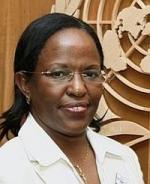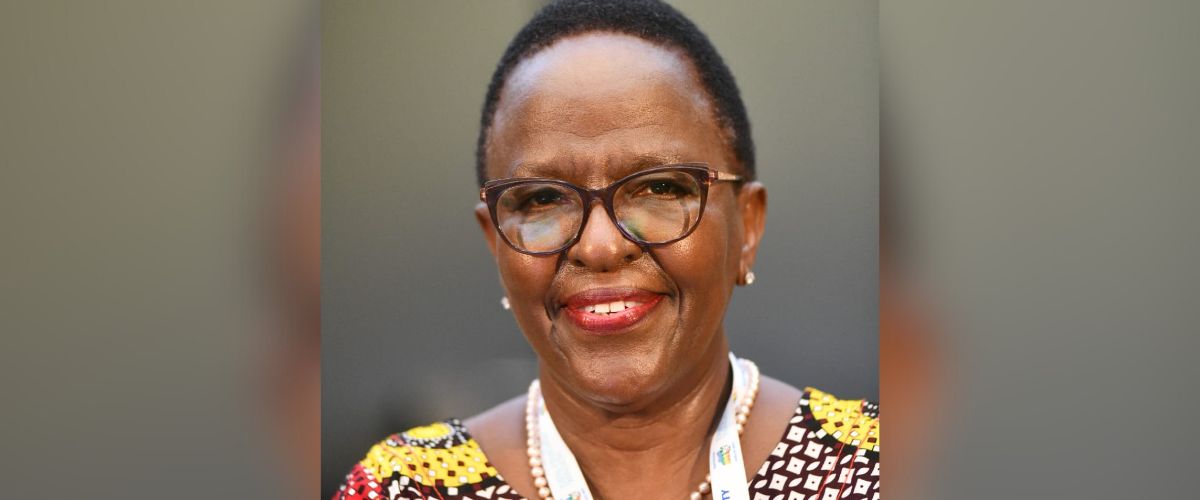
It is my honor and pleasure to address this august gathering which brings together interdenominational leaders and peace activists to exchange views on this critical subject matter of “Nuclear Disarmament and the Audacity of Peace”.
I thank Prof. Marco Impagliazzo, the President of the Community of Sant ’Egidio for the kind invitation, the warm reception and hospitality extended to me by the Community Secretariat since my arrival in this beautiful city of Berlin.
I can’t thank enough, my colleague and friend Professor Andrea Bartoli who introduced me to this holy Community of Sant’Egidio which facilitated my participation.
There could not have been a better time than now to speak about making peace and renewing our commitment to engage in dialogue as global peace has increasingly become illusive as the world continues to witness horrific wars and crimes against humanity.
I am happy to share a platform with eminent persons and of course my good friend Andrea Bartoli who together we are engaged in the prevention of Genocide and Mass atrocity crimes through the Global Action Against Mass Atrocity Crimes (GAAMAC), a State-led network of States, civil society and academic institutions committed to preventing atrocities worldwide.
I come from Tanzania and the Great Lakes region of Africa that has had a very turbulent past and experienced the world’s deadliest conflicts including genocide in Rwanda of 1994.
As the genocide unfolded in Rwanda, the UN Security Council spent hours discussing what to call it and what action to take. Hence the world watched and did nothing to stop it. Over the course of 100 days nearly 1 million people, mostly Tutsis, were murdered by the country’s extremist groups and people.
The cost of the ensuing humanitarian crisis was beyond imagination both in human casualties and monetary costs.
It is hard to contemplate what the nuclear war can unleash on humanity and annihilation of this planet.
The international community has taken several steps to improve its ability to prevent and respond to genocide and mass atrocities. The Global Action Against Mass Atrocity Crimes(GAAMAC) platform is one of the efforts to ensure that prevention becomes a corner stone priority through active engagement of state actors and civil society.
With the adoption of the Responsibility to Protect commitment to action adopted at the 2005 World Summit, the UN Member states agreed “to take collective action, in a timely and decisive manner…should peaceful means be inadequate and national authorities are manifestly failing to protect their populations from genocide, war crimes, ethnic cleansing and crimes against humanity.”
A WORLD FREE FROM NUCLEAR WEAPONS
Nuclear weapons are undoubtedly undesirable and yet here we are in our current state of affairs burdened with collective threats of nuclear weapons proliferation and horrors of a potential nuclear war.
In the 1980s-1990s there was growing momentum for peace and nuclear disarmament.
Tanzania under the leadership of the first President and Founding Father of our nation, Mwalimu Julius Kambarage Nyerere played a prominent role in the Non-Aligned Movement to advocate strongly, on behalf of the Third World countries, of a world without the threat of nuclear weapons. In this regard, Tanzania joined the Six-Nation Five-Continent Peace and Disarmament Initiative to advocate for a nuclear free world. The leaders of the six countries namely Greece, Sweden, Argentina, India and Tanzania in their appeal on 22 May 1984 said “..the prevention of nuclear is not an issue that concerns only superpowers. It is of direct concern to all of us since it threatens our lives”.
This statement was true then and remains true today.
Given that all nations were at risk from a nuclear war, many felt it was irresponsible just to leave it in the hands of the two superpowers who already have a nuclear arsenals capable of destroying one another more than fifty-times.
Multilateralism has been the centerpiece that keeps any threats to global peace and prosperity at bay. It is now more than ever that we need to revive and trust in our age-old mechanism of collective resolution -multilateralism.
Multilateralism is still the best platform in which these threats, and their dire consequences are adequately considered.
The choice of nuclear disarmament as a topic for this interfaith dialogue is telling of the hope we have in this tool to ensure a world free from any and all threats.
One of these tools is the Nuclear Proliferation Treaty (NPT) which provides provisions without any pre-conditions for how to realise a nuclear fee world. As we all know it calls for states to no longer produce nuclear weapons and that nuclear energy should be used for peaceful purposes - allowing countries to continue using nuclear energy in good will and for our own collective good and that of future generations.
This Forum should therefore urge Countries to use nuclear energy for peaceful and sustainable purposes; and not otherwise.
We all have a responsibility to “save the succeeding generations from the scourge of a (nuclear) war”- UN Charter
In this regard, let us focus on achieving sustainable development and investing more on prevention and mitigation.
The complete elimination of nuclear weapons should be prioritized and optimized so as to remove the danger of Nuclear War. This cannot be realized by individual efforts but rather collectively. In doing so, we will then have created a peaceful world, a prosperous world for us to live in and future generations.
On 3 January 2022, the permanent members of the United Nations Security Council, China, France, Russia, UK and the United States issued a statement on prevention of nuclear war cannot be won and must never be fought!!
As put it by one scholar, “prevention-focused foreign policy would save lives as well as money and resources”.
